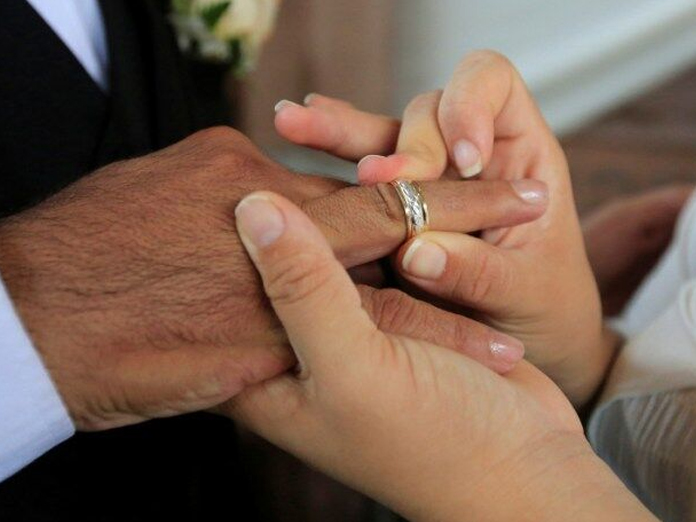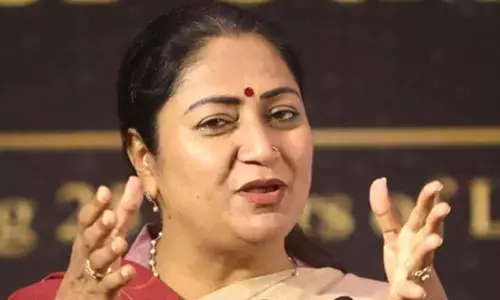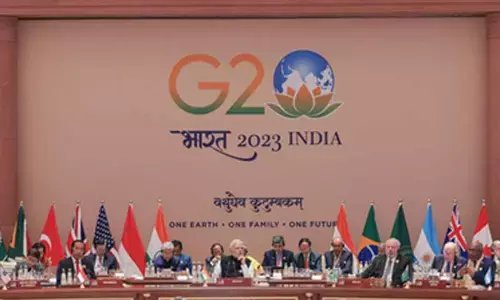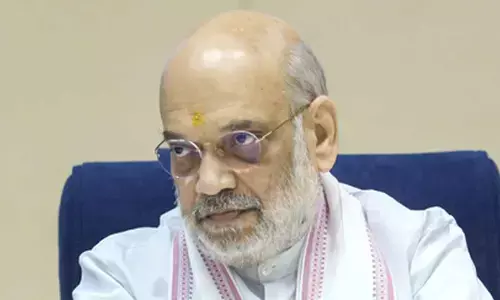Marriage is good for physical and mental health: Study

According to a new study, married men and women have better physical and mental health at older ages than unmarried people
Washington D.C: According to a new study, married men and women have better physical and mental health at older ages than unmarried people.
The study, published in the journal PLOS One, found that married people, besides having a better health, specifically walk faster and have a stronger grip, reported CNN.
The study, led by Natasha Wood from University College London's Institute of Education, found researchers looking into the association between marital status and the ability to carry out everyday tasks in later life.
The team elected focussed on two indicators: walking speed and grip strength.
"Walking speed is an overall measure of health, which includes lots of things like balance, agility and speed, while grip strength reflects upper body strength,” Wood explained.
They analysed data from two existing studies of older people and their physical capability.
Married people were separated into those in their first marriage and those who had remarried, while unmarried people were divided into those who were divorced, who were widowed or who had never married.
In both studies, married people came out on top. Both unmarried men and women had slower walking speeds than their married counterparts. Men in England in their first marriage walked four inches per second faster than never-married men and three inches per second faster than widowers.
There was a far less significant difference between men in their first marriage and remarried men, with the former walking less than a tenth of an inch per second faster.
The results were similar in the United States: Men in their first marriage walked about an inch per second faster than never-married men and three inches per second faster than widowed men. Men in their first marriage were only about a fifth of an inch faster than remarried men.
For women in England, those in their first marriage walked from 2 to 3 inches per second faster than unmarried women, while their equivalents in the United States walked about 2 inches per second faster.
A similar pattern was visible with grip strength but only for men. American men in their first marriage had a 1-pound stronger grip than those who never married and a 2-pound stronger grip than widowers. The survey indicated that grip strength was less strongly associated with marital status in women.
But men who had remarried performed best: Their grip was a half-pound stronger than that of US men in their first marriage and a pound stronger than men in their first marriage in England.
“It might be something to do with selection into remarriage: People who are physically healthier are getting remarried,” Wood said, though she stressed that more research was needed to establish this link.
The explanation for the majority of the findings, particularly better fitness, is wealth, which married people have accumulated more of by later life than unmarried people, she said.
Wealth, she explained, can impact health in a variety of ways. According to researchers, wealthier live in better surroundings, they don't have the day-to-day stresses associated with not having enough money, they probably eat more nutritious food, as they can afford it.
Furthermore, that have access to better health care, and they may have larger social networks and enjoy leisure activities.
"Consequently, they have better overall mental and physical health, and all of these things are associated with better physical capability," Wood said.
The results of the research could have significant implications for older people's health as marriage rates decline, Wood posted.
"With more people entering older ages unmarried, there could be more people with physical capability difficulties at older ages," she said.
Alternatively, the health impact of marriage might shrink, Wood added. "As marriage rates decline, it is also possible that the association between marriage and physical capability may not be so strong for younger people when they reach older ages," she said. "So being unmarried may not be so important for their physical health."














